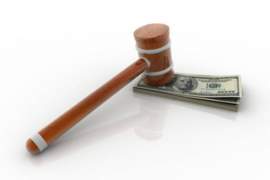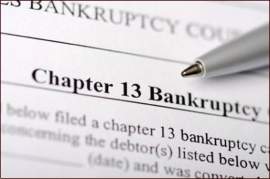
Understand the Bankruptcy Court Governance

Related Forms
Certification of Judgment for Registration in Another District
Certificate of Retention of Debtor In Possession
Certificate of Commencement of Case
Certification of Notice to Individual Consumer Debtor(s)
Certification to Court of Appeals
Notice to Individual Consumer Debtor
Notice of Need to File Proof of Claim Due to Recovery of Assets
Notice to Creditors and Other Parties in Interest
Notice of Transfer of Claim Other Than for Security
Order Finally Approving Disclosure Statement and Confirming Plan
Order and Notice for Hearing on Disclosure Statement
Order on Reaffirmation Agreement
Order on Reaffirmation Agreement
Order for Relief in an Involuntary Case
Subpoena in a Case Under the Bankruptcy Code
Subpoena in an Adversary Proceeding
Subpoena for Rule 2004 Examination
Summons and Notice of Trial in an Adversary Proceeding
Summons and Notice of Pretrial Conference in an Adversary Proceeding
Summons in an Adversary Proceeding
View All
Though there may be a Supreme Court, there is no one United States bankruptcy court to hear individual bankruptcy cases. The demand would simply be too large on that one court. However, there is a Federal bankruptcy court system.
The Federal bankruptcy court system is the usual destination for bankruptcy cases, and upon a decision reached by a bankruptcy, barring an appeal, this finding will be final. However, the United States bankruptcy court system is only a part of the U.S District Courts. After a petition is filed with a bankruptcy court, the District Court of a particular jurisdiction may always choose to waive its right to refer proceedings to that court, and instead hear the case itself. Depending on the district, though, the district court may refer cases to the bankruptcy court by virtue of standard practice, so any friction between agencies in this hierarchy is effectively minimized.
Much as the U.S. District Courts must delegate the right to the bankruptcy courts to actually hear individual cases, the Federal bankruptcy court system is subject to a codified set of rules established by a higher authority: the Federal Rules of Bankruptcy Procedure, which are an appendix to the Bankruptcy Code.
A given United States bankruptcy court is helmed by an official bankruptcy judge, but a number of other officers of the court will be involved in the application process and any subsequent hearings. Usually, a court of clerk will refer a case to a particular arm of the Federal bankruptcy court system, and the U.S. trustee will appoint a trustee to assist with the case.
NEXT: What is the Role of Bankruptcy Judges





















